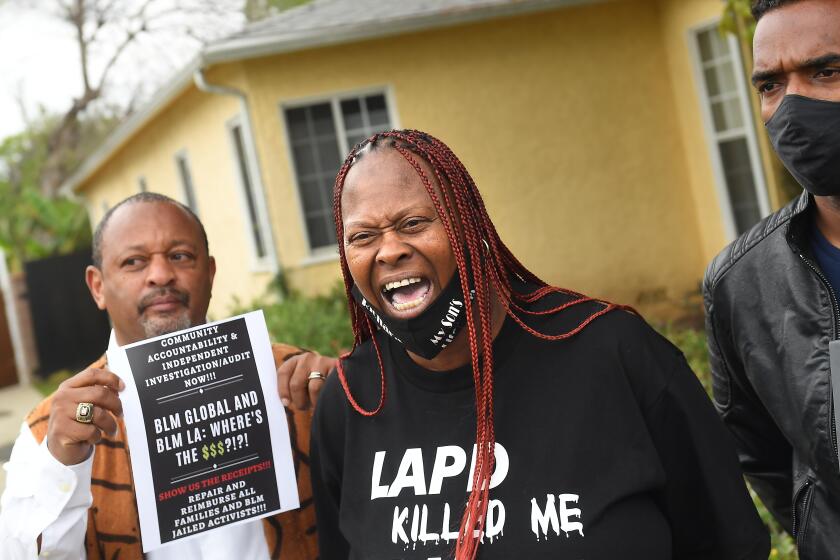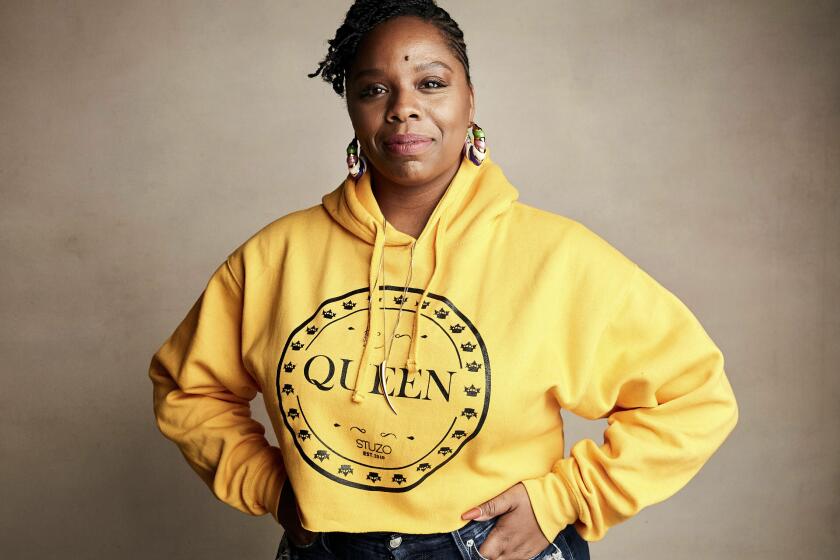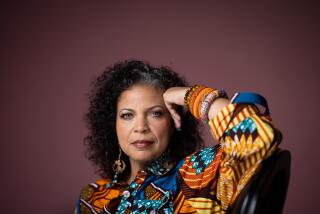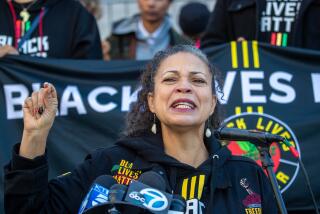Its founders gone, Black Lives Matter has reached the end of an era
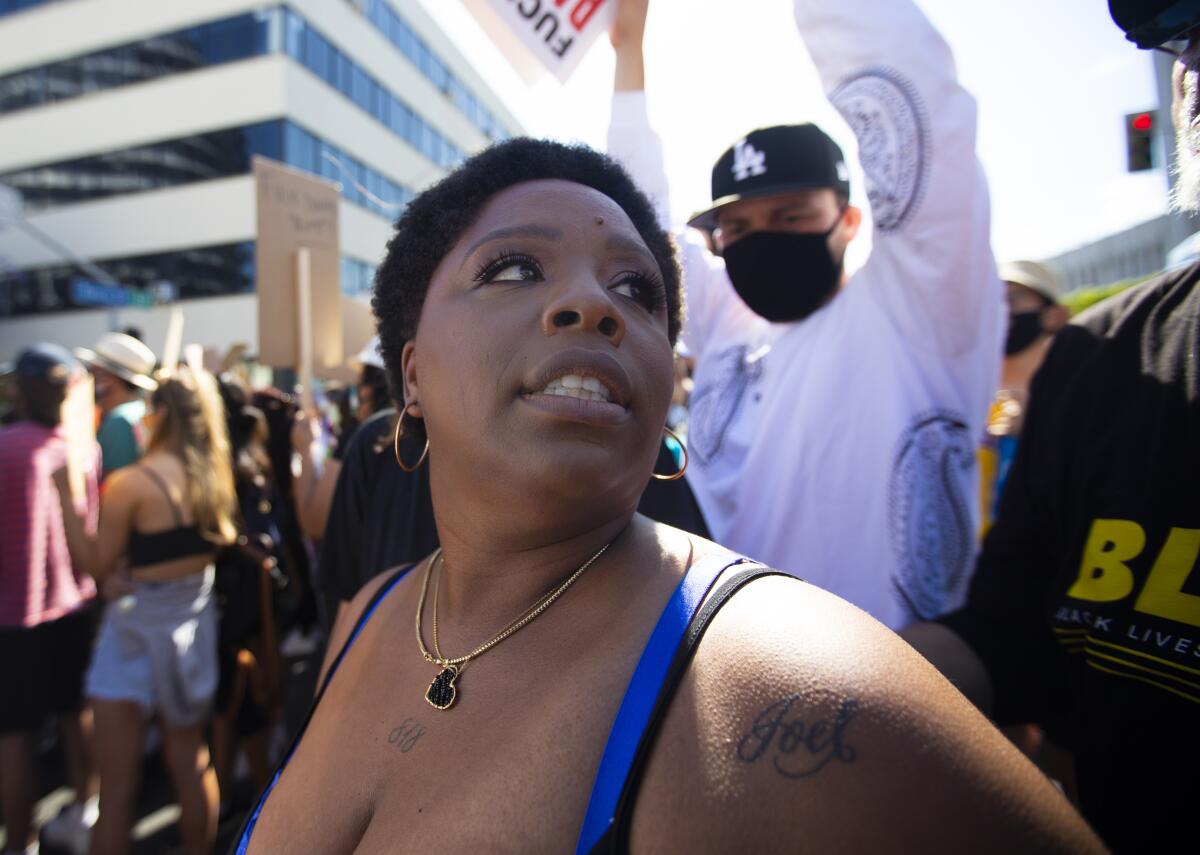
- Share via
Most of the time, when the leader of a high-profile organization gets tangled up in controversy and suddenly announces a plan to step down, the reason is obvious. Canned explanations such as “it feels like the time is right” never ring true.
But I’m inclined to take Patrisse Cullors — tangled up in controversy though she is — mostly at her word.
On Thursday evening, the Los Angeles-based co-founder of Black Lives Matter said she would no longer serve as executive director of the nonprofit behind the movement, known as the Black Lives Matter Global Network Foundation.
During a livestreamed meeting with a small group of journalists and Black activists, Cullors assured everyone that her decision had been in the works for more than a year and that it shouldn’t be interpreted as “a crisis” but “a moment of celebration.”
“I’ve created the infrastructure and the support, and the necessary bones and foundation, so that I can leave,” she told the Associated Press.
The timing of her departure has raised eyebrows, though.
For weeks, Cullors has been taking heat from right-wing racists, who insist — without evidence — that she has been stealing money from the Black Lives Matter foundation and using it, as the New York Post insinuated, for a “million-dollar real estate buying binge.”
Column: There’s a fight over the direction of Black Lives Matter. The timing couldn’t be worse
For years, activists have been questioning what Black Lives Matter does with the donations it gets. Those questions have turned to accusations.
And for months, Cullors has been taking heat from progressive Black activists, who want to know what the foundation did with the $90 million in donations it raised after George Floyd was murdered in Minneapolis and why more of it hasn’t gone to the families of those slain by police.
Cullors denies any wrongdoing or improprieties and insists that families are, in fact, being helped.
But Cullors has built personal wealth through book deals, speaking engagements and a recent contract with Warner Bros., and that has irritated some people on both sides of the political aisle.
I have no doubt that these criticisms played some role in her decision to leave the nonprofit foundation sooner rather than later. What played a far bigger role is that the Black Lives Matter Global Network Foundation has simply outgrown her.
This is just the natural evolution of a grass-roots organization that is suddenly no longer quite so grass roots.
Black Lives Matter, if you’ll recall, began as a humble social media hashtag back in 2013. That was right after neighborhood watch volunteer George Zimmerman was acquitted in the killing of 17-year-old Trayvon Martin in Florida.
Get the latest from Erika D. Smith
Commentary on people, politics and the quest for a more equitable California.
You may occasionally receive promotional content from the Los Angeles Times.
Back then, few Americans other than Black people seemed to understand or care that police — not to mention random racist vigilantes — were targeting and killing us in disproportionate numbers. Or that because of systemic racism and white supremacy, Black people were lagging in everything from access to healthcare to household income.
So entrenched was the mass delusion that millions of white people lost their minds when President Obama had the audacity to speak the truth and acknowledge that Trayvon “could have been me 35 years ago.”
In this political climate, Cullors and fellow Californians Alicia Garza and Opal Tometi helped turn Black Lives Matter into a decentralized global movement, by creating the nonprofit foundation and then licensing a network of official chapters.
The activists who showed up to protest and march after each police shooting raised awareness. The issue of racial injustice became inescapable, and Americans of all races finally began to understand and care.
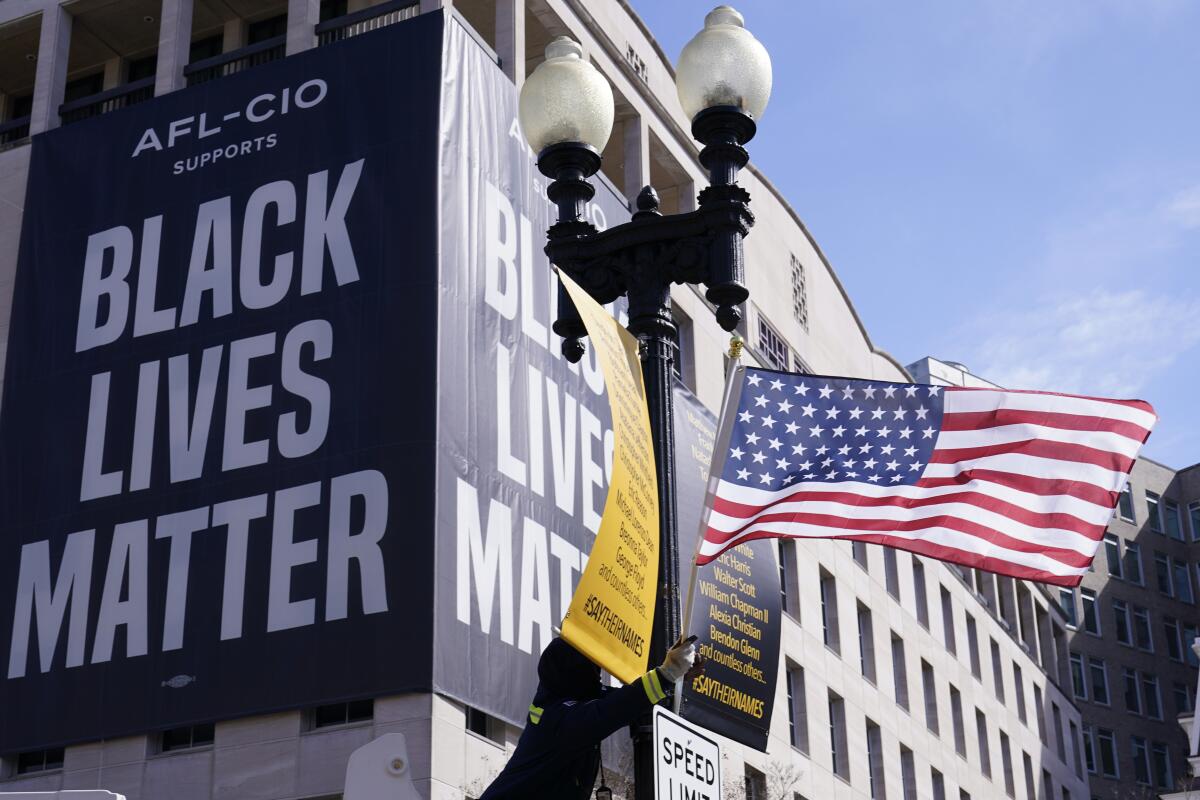
We saw evidence of this shift in thinking in the aftermath of Floyd’s death, when people in cities across the country took to the streets in anger. And we saw more evidence this year when former police Officer Derek Chauvin was convicted of murdering Floyd.
Times have changed so much that our Black vice president, Kamala Harris, regularly talks about the need to address the “persistent issue of police misconduct” and “racial injustice wherever it exists” — and millions of white people agree with her.
What Black Lives Matter did, thanks to the leadership of Cullors, even as Tometi and Garza moved on to new ventures, was to normalize discussions of systemic racism and white supremacy. That was needed.
Now we need something different. More than just marches, there’s a lot of new and nuanced public policy work to be done.
We need to get rid of qualified immunity for police officers and stop cities from reacting to rising homicide rates by pouring money back into police budgets. We need to end attacks on voting rights and fix disparities in the nation’s healthcare system. We need to remove whitewashed school curricula from classrooms.
Patrisse Cullors, a co-founder of Black Lives Matter, says her stepping down has nothing to do with the personal attacks she has faced from far-right groups or any dissension within the movement.
We’ve reached the obvious end of one era and the beginning of a new one. And I believe this, above all else, is why Cullors decided “the time is right” to step down.
But in her wake, Cullors also has left questions that must be answered.
What does it mean to be an activist going forward? And what does it mean to lead a movement? Does one have to be poor to do it? Or can activism include hitting the lecture circuit, writing books and, yes, making money?
I’m a firm believer that one of the hallmarks of great leadership is knowing when it’s time to step down and make way for others. Our country is filled with great leaders with great big egos who stick around too long — cough, Dianne Feinstein, cough — and put their organizations and their reputations through unnecessary drama.
On Thursday, Cullors named two new interim senior executives: Monifa Bandele, founder of the Malcolm X Grassroots Movement in New York, and Makani Themba, chief strategist at Higher Ground Change Strategies in Jackson, Miss.
They will, I hope, put the nonprofit foundation on a path toward more transparency, so that when a new executive director is hired, they will be in position to do the fundraising and policy work that lies ahead.
“It’s been a powerful eight years,” Cullors said, according to theGrio. “Our organization truly has been at the vanguard of what it means to fight for Black liberation, what it means to fight for abolition. ... I’m looking forward to watching from a different point of view what the organization will continue to accomplish.”
More to Read
Get the latest from Erika D. Smith
Commentary on people, politics and the quest for a more equitable California.
You may occasionally receive promotional content from the Los Angeles Times.
